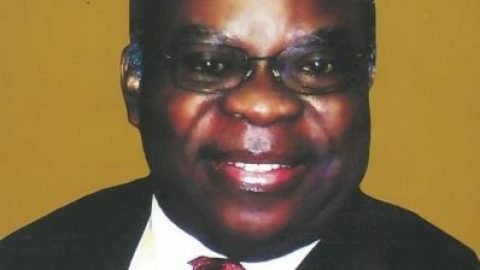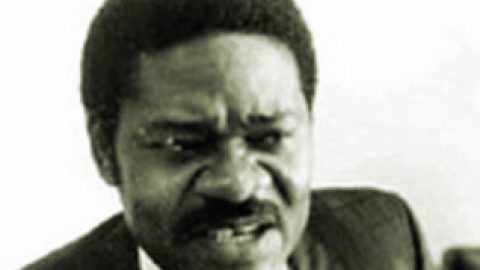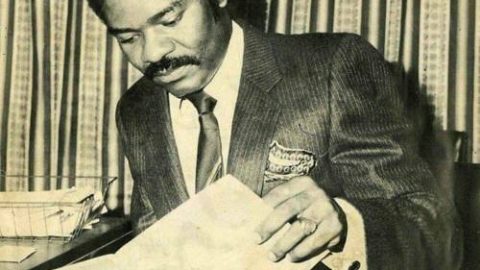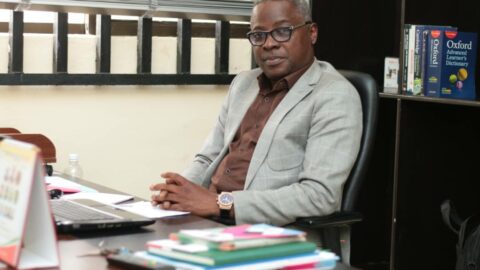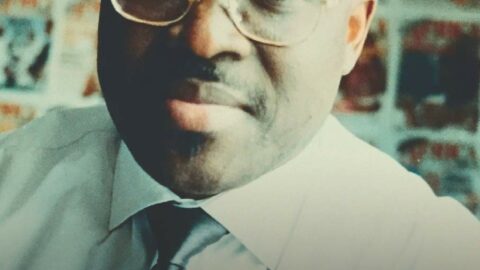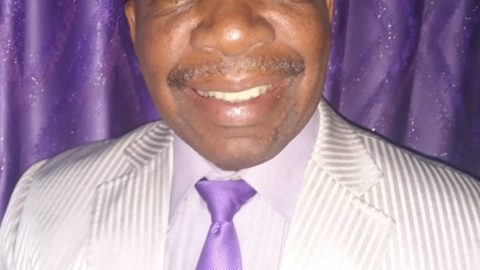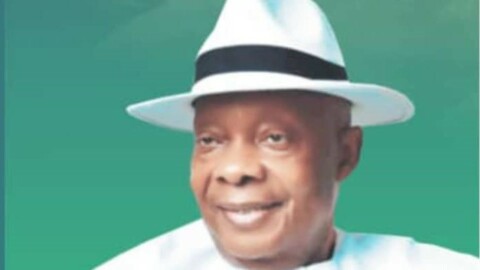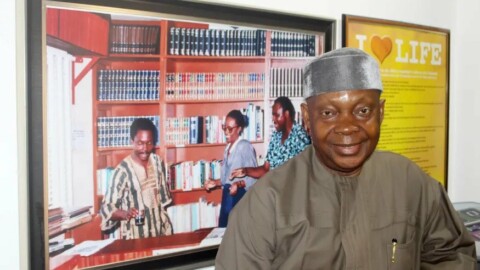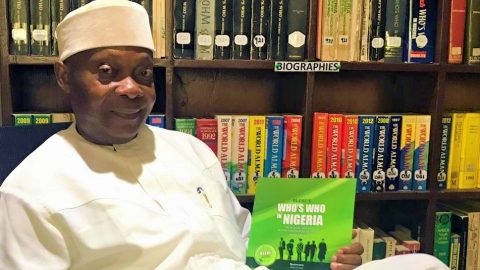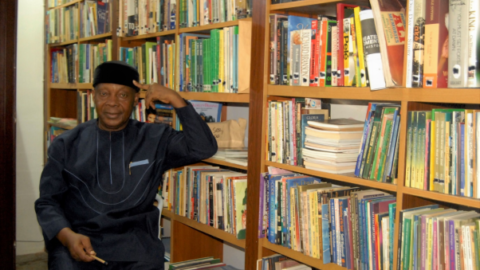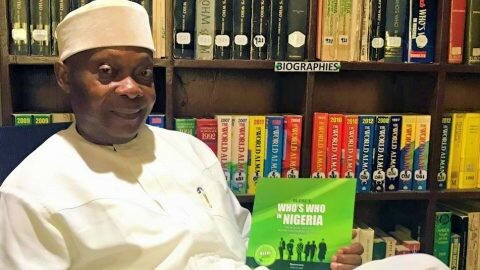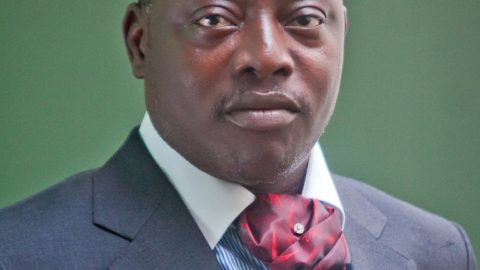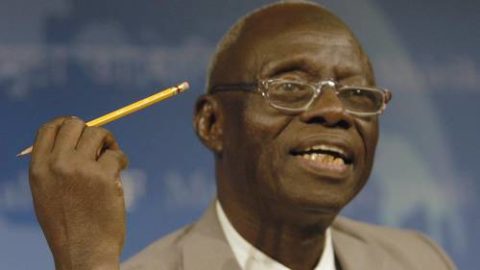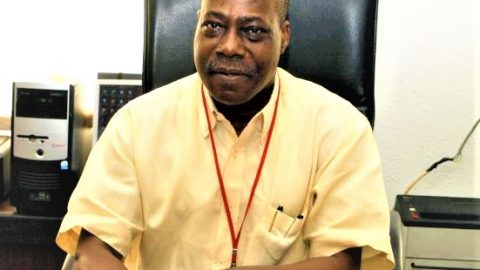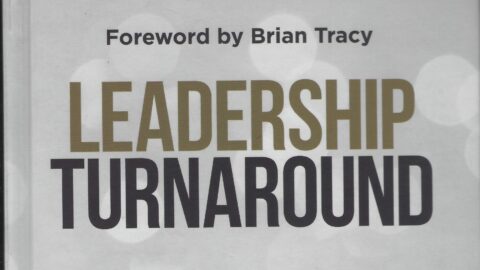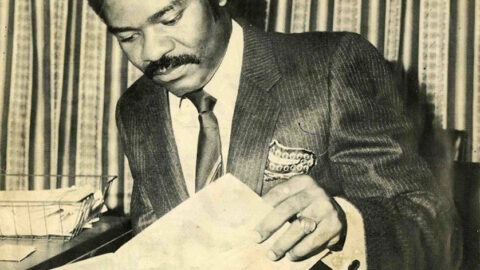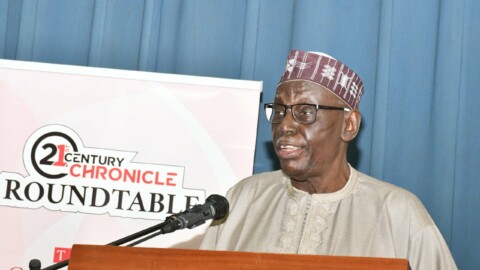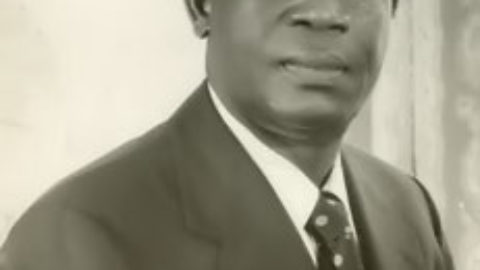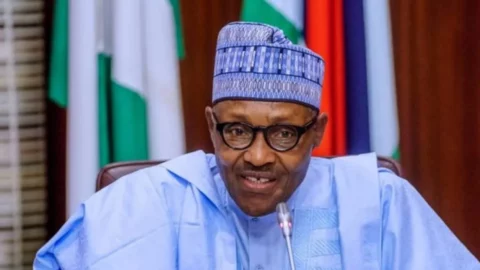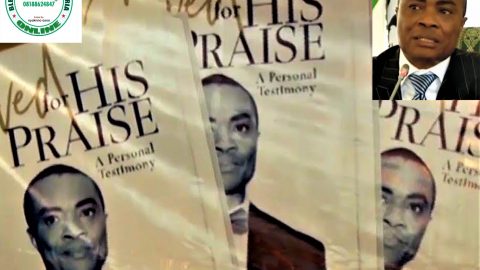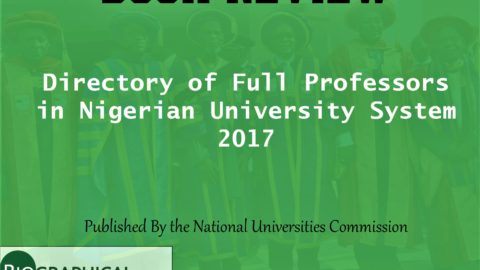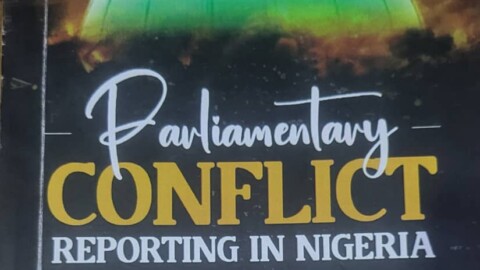A review by Ray Ekpu of the book titled, “It is well with my soul” by Obong Victor Attah, ex-Governor of Akwa Ibom State on his 80th birthday
Protocols:
I feel honoured, deeply honoured, to be asked to do a review of Obong Victor Attah’s book “It is well with my soul.” In my part of the world and in most parts of Nigeria not much attention is paid to the documentation of public affairs by politically exposed persons.
When it does happen, it is a good reason for celebration because it adds something imperishable to our fountain of knowledge and history. Besides, Obong Victor Attah has just registered his name in the octogenarian club. I am sure many of us are wondering how he got there and are also hoping that it will please God Almighty to bless us with the gift of longevity the way He has blessed Obong Attah.
The last time I saw the former Governor of Akwa Ibom State who has been named as the Father of Modern Akwa Ibom by his admirers was on August 6, 2018. That was the day I clocked 70 and I had the pleasure of being honoured by the illustrious man’s presence at the event. I didn’t know that the distance between him and 80 was short because he did not look the part. Now that he has arrived at the port of 80 he still doesn’t, his speech is unencumbered, he walks straight showing that there is still a spring in his feet.
He doesn’t carry a walking stick which is the prerogative of old people who need it to support themselves with. Today it is customary to find young people who have acquired, by fair or foul means, the honorific chief carrying walking sticks in the mistaken belief that it is the symbol of chiefhood. A walking stick was never meant to be the staff of office in the days of yore because only older people were honoured as chiefs then and the walking stick was for their physical support.
But because a people’s culture and tradition are dynamic, there is a sea change in the affairs of that respected institution and even young people who have not been admitted into it carry some fancy walking sticks as a fashion item. However, Obong Attah, a confirmed chief does not carry a walking stick.
I wish to heartily congratulate him for being able, through God’s kindness and mercy, to go beyond the proverbial three score and ten and to get into the belt of octogenarianism in good health. I wish him many more years of service to Akwa Ibom, Nigeria and mankind. Also, on the 10th of November 2018, the authorities of Western Delta University in Oghara, Delta State, installed him as the Chancellor of the University with an award to him of an honorary doctor of Laws degree as the icing on the cake. Sometimes when blessings come they come in multiples. My hearty congratulations for this honour.
EXCURSION INTO HIS FORENSIC WORLD
What I am going to do here is not a normal literary review. It is an excursion into the forensic world of Chief Victor Attah with a view to celebrating him for his exertions for Akwa Ibom, Niger Delta and Nigeria.
In the course of his tenure as the Governor of Akwa Ibom State for eight years (1999-2007) he must have made many speeches, written and unwritten, on many subjects. He has chosen to publish in this book 14 of them which open a window into the inner recesses of his mind. There is also a Preface to and a post-mortem on his administration contributed by Dr Dele Sobowale, a media consultant and a long standing friend of his. The book, a 242 affair, also carries photographs, in colour, of Attah’s achievements in the provision of infrastructure and other amenities as Governor of Akwa Ibom State. The book is published by Agbo Areo Publishers in Ibadan, Oyo State. It has on its cover the photograph of Obong Attah who seemed about to smile but eventually denied us the favour.
The speeches span across several subjects such as the Akwa Ibom Economic summit, safety and financing of the aviation industry, matters of the South South Assembly, the Guild of Editors’ conference that was held in Uyo in October 2005. Attah also played host to President Olusegun Obasanjo twice on which occasions he gave a litany of his accomplishments and also handed the President a shopping list.
However, the most important of his speeches published in the book relate to his aspiration and ascension to power as Governor and his campaign for resource control while in the office culminating in a brutal fight with President Olusegun Obasanjo.
His first statement which he delivered at his 60th birthday on November 22, 1998 was his self-introduction to the Akwa Ibom people on the desirability of choosing him as their leader. He said: “I have spent many years observing the painfully slow progress of my people in Akwa Ibom State which state of affairs is the cumulative effect of short-sighted, uninspiring leadership, too numerous missed and misplaced opportunities, distorted priorities, improper harnessing of manpower, small dreams, phobia for risk-taking, undue conservatism erroneous neglect of women as a valuable developmental resource and the misguided marginalization of the invigorating strength of youth.”
He also said that he was sure that armed with a visionary, responsive and well-informed leadership, Akwa Ibom will cease to be a mere statement of hope as the Land of Promise and quickly transform into an affirmation of reality as the Promised Land.
He asked his party, The PDP, and the people to give him the chance to become their governor. They did. On May 29, 1999 he took over the reins of office from Group Captain E. J. Ebiye, the last military Governor at Uyo Township stadium with great pomp and panoply.
On that occasion, he said: “Let our tomorrow begin now. And as you depart let it be known from the wetlands of Eastern Obolo to the paddy fields of Ini that it is a new dawn in Akwa Ibom. At last we have emerged from the dark tunnel into a new light, a new dawn that holds the promise of the good life for all of us.”
A few days later he published his Mission Statement and manifesto in which he analysed the problems and pointed the way to the future in such areas as Agriculture, Electricity, Communication, Health, Water, Housing, Security, Sports, Culture and Revenue Generation.
He promised to create a “new breed of Akwa Ibomites who will hold up their heads without fear but rather with firmness, devoid of belligerence. He will scream where his father whispered and he will be heard.”
RESOURCE CONTROL: HIS CONSUMING PASSION AS GOVERNOR
Without doubt his consuming passion as Governor was the ticklish issue of resource control. He, together with Governor DSP Alamieyeseigha of Bayelsa and Governor James Ibori of Delta State were the moving spirits behind the revived agitation for resource control.
At a lecture titled, “Resource Control as panacea for sustainable peace and development of the Niger Delta in a democratic system” in Yenagoa, Bayelsa State, on November 15, 2002 Obong Attah said: “In a federal arrangement, revenue flows from the federating units to the centre.
It follows, as a cardinal principle of federalism, therefore that component units must control their resources, develop themselves to the best of their ability and contribute as appropriate to the maintenance of the Centre.
A comprehensive fiscal federalism must ensure equity and fairness in the revenue allocation formula. Resource control is, above all, the panacea for equity and fairness in Nigeria’s fiscal federalism.”
He talked about the ecological devastation of the oil producing areas via oil exploitation, denial of the people of the Niger Delta people of their natural rigts to ownership through various obnoxious laws.
When the Supreme Court gave its judgement that was considered oppressive to the Niger Delta people Obong Attah issued a statement on April 5, 2002 that stated: “Please let the impression not be given that after we had formed ourselves into the matrix that binds the belligerent majority tribes of Nigeria into one country, the only reason that we are wanted in the Union is so that we can be raped and all of our resources carted away in a manner that even the worst external colonialist could not have contemplated.”
He said further: “This judgement will remain to the eternal shame of the Supreme Court of Nigeria unless it assumes the courage in future to reverse itself.” Somehow the Obasanjo government managed to sew together a patchwork of compromises called political solution to stave off the gathering cloud of wahala in the Niger Delta on account of the court judgement.
The Niger Delta remains a recurring decimal and a sad reminder that trouble is not far beneath the surface. The Vice President, Professor Yemi Osinbajo, did a tour of the Niger Delta states sometime ago making many promises for which he received a standing ovation. Sadly, most of those promises have not been implemented.
They remain just empty promises. Meanwhile, six of the oil producing states have no oil refinery or any oil related industry of any kind but a new refinery is to be built in a state that does not produce even a drop of oil. Is that a fair deal? So the injustice continues while Nigeria sits, not pretty, on this time bomb. If the Niger Delta problems are not attended to speedily and the boys go back into the creeks, Nigeria will be in trouble, deep trouble.
I agree with Dr Sobowale’s assessment in his post mortem that Obong Attah was one governor who addressed the physical, philosophical and visionary aspects of leadership and who was in touch with the yearnings of his people. He had several confrontations with President Obasanjo on behalf of his people.
“He was victorious in many of his battles with the President on sheer guts and the rightness of his case and not because he stooped to conquer. His head was never bowed even in defeat. He demanded respect and he got it, even if grudgingly from those accustomed to politicians from minority ethnic groups pleading their case on their knees.”
Dr Sobowale says in the post-mortem that he has toured the three senatorial districts of Akwa Ibom State to ascertain how much of Attah’s vision had been sustained by his two successors, Chief Godswill Akpabio and Mr Udom Emmanuel, since Attah left office in 2007. Dr Sobowale’s assertion is that very little has been added despite the much bigger resources received by both Akpabio and Emmanuel.
According to him, Attah collected a little less than N600 billion from the Federation Account in eight years while Akpabio received almost N1.3 trillion during his first term and close to N1.6 trillion during his second term. He said “yet the Akpabio legacy points not to an “uncommon transformation” but “uncommon waste and pillage.”
He pointed to the uncompleted Tropicana Hotel, the Specialist Hospital and the 12 storey uncompleted hotel in Ikot Ekpene among other projects that he alleges were either abandoned or badly executed or overpriced. He comes to the conclusion that Attah’s two successors have not done much to advance Attah’s vision in the State.
Since I have done no project assessment tour of the projects done by the three governments in the 31 local governments or even in the three senatorial districts I feel ill-equipped to do an across the board comparison of the achievements of the three regimes.
Besides, such an analysis must take into consideration differences in vision, quality of jobs, state of the economy, value of the naira, exchange rate, security challenges and other existential factors. Despite inadequacies that may exist. I think Dr Sobowale is not simply whistling in the dark.
His view may rattle some skeletons in the closet. From what we generally know about project implementation in Nigeria there is the need for us not only in Akwa Ibom but all over Nigeria to interrogate the quality of jobs and the expenditure profile or even the development paradigm that we utilise for various community projects
A few posers can help. Do we need an airport in states where there are just two flights a day? isn’t that a monumental waste? Do we need two lane tarred roads in rural areas where less than 10 cars may ply in a week? Must we build gigantic stadia with all seats covered at an expensive cost when most developed countries do not engage in that reckless indulgence.
Most of them only cover the high paying stands while the low paying spectators are happy to use their raincoats when rain pours. It is obvious that in Nigeria we are enamoured of conspicuous consumption and its accompanying illusion of grandeur.
Whether in Akwa Ibom State or elsewhere in Nigeria it is true, sadly true, that we have not yet arrived at Adam Smith’s heralded land of universal plenty. We could be much more prudent in our expenditure than we currently are.
Do we want to simply throw our hands in the air, smile the smile of satisfaction and chorus with John Maynard Keynes that we don’t need to worry because in the long run we are all dead. But the long run may be long for some and short for others. Our mono-product economy is porkmarked with booms and bursts without the covering fire of diversification. The end of oil is near, very, very, very near. Are we ready for it? No. There is no evidence that we are ready.
Our development philosophy seems to be “bigger is better.” Is that really a winning philosophy for developing countries with their poor and illiterate populations. I don’t think so because we can hardly maintain huge, complex projects from either a financial or technical or managerial point of view.
I suggest that we try the economic philosophy of Ernest Friedrich Schumacher, a German-born British economist. Mr. Schumacher travelled to Burma in 1955 as an economic consultant. While there, he worked with the local people and developed a set of principles he called “Budhist economics.”
His focus was size-based and thought it was easier and cheaper for local communities to manage projects in small sizes. In 1973, he published a book titled, “Small is Beautiful.” That 288-page book is considered one of the 100 best classics published since the end of the Second World War.
Nigerian leaders must be ready to follow paths that are not yet paved, to think outside the box instead of continuing to plod along the beaten path which has not provided any salutary results over the years. That I think, is perhaps the most precious birthday gift that we can offer to Obong Victor Attah in compensation for his courageous exertions on behalf of those of us who believe in a restructured country for fairness, justice and equity.
The opponents of restructuring are living in denial, raising nitpicking arguments about what it is, whether it is a bird or an animal, or a return to regionalism or the quest for confederation or what should be the form or the format and are even questioning whether those who propose it truly want a united Nigeria.
They are seen as dissidents. But truth be told Nigeria is not working, not working as seamlessly as a country with vast solid and liquid mineral resources and abundant manpower ought to work. How can a country where Governors go to Abuja with handbags every month to collect money from a federal pool be said to be working? When there is a shortage of fund they all cry because it means that their staff and their citizens will starve. For how long are we going to continue that way?
In March 1994, there was a national symposium mounted in Lagos called Azikiwe/Gowon National Symposium. The chairman was Justice Fred Anyaegbunam and the Coodinator was Alhaji Ahmed Joda, a retired super-permanent secretary. I was the Special Rapporteur.
The idea behind the conference was to force General Sani Abacha’s hand to convoke a national conference which he eventually did the following year. Obong Attah came from Kaduna to attend the conference which discussed various issues that were biting Nigerians.
I discussed with Attah and suggested he didn’t need to talk on various issues. So he focused on the Niger Delta like a laser beam. I reported his presentation copiously. That night as I was working on the draft communique to be presented at the closing ceremony the next day, the oppressors of the Niger Delta people sent a certain Professor of Political Science from the North to come and join me in drafting the communique. I had no objection because it would have made my work load lighter.
The man said to me, “Ray, I am sure you know why they asked me to join you. It is the Niger Delta issue. But they forget that I am a minority like you. For the past few days you have been doing the work alone. Please carry on. I won’t even bother to look at what you are doing.” The next day I presented the draft communique to the conference. They found fault with some of the issues on the Niger Delta.
I was directed to rewrite it and take it to General Yakubu Gowon’s house for signature before distributing it to the media. The reason I am telling this story is for Niger Deltans and all men of goodwill to realise that the battle which Attah and others waged relentlessly for the improvement of the Niger Delta is an unfinished business. As it was in 1994, so it is even now. Can you see how long the Petroleum Industry Bill has remained in the cooler first at the National Assembly and next at the Presidency. That may be, if care is taken, its final resting place.
So for me the best tribute to pay to Obong Attah is for us to carry on the battle for the emancipation of the region from the clutches of unconscionable oppressors and the people from the pangs of grinding poverty.
Ray Ekpu


